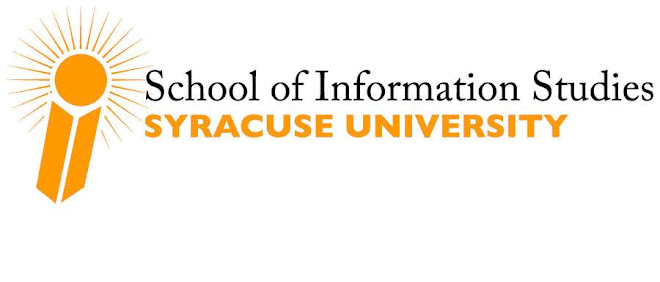Professor Carsten Osterlund and doctoral student Saira Naim Haque led a conversation to explore the state of medical informatics in iSchools. Carsten and Haque and others who participated in the session investigate such areas as:
--integrate information systems to ensure cohesive and comprehensive patient care
--errors as an information issue, not a medical issue
--medical versus health informatics
--re-engineering process to alleviate overcrowing issues in ERs (as opposed to building larger hospitals or hiring more doctors)
--patient online support groups and how they can employ new technologies such as wikis
--use of information communication and technologies to improve healthcare in third world countries
--privacy and patients' rights
The group also discussed why iSchools are the appropriate place for this type of research and what unique skills they bring to medical informatics research. A few qualities that stood out were the interdisciplinary nature of iSchools and an outsider's perspective that can build theories from the applied nature of this research.
Researchers from iSchools are removed from the clinical aspects of the field, and yet they are focused on the information needs of both patients and doctors. They can help bridge the MD world and the Ph.D. world by focusing on the social implications of technology.
Several iSchools are launching medical informatics courses or programs within the school or partnering with other programs within their universities. What should those courses and programs look like? Participants suggested that courses should be based in applied work.
--integrate information systems to ensure cohesive and comprehensive patient care
--errors as an information issue, not a medical issue
--medical versus health informatics
--re-engineering process to alleviate overcrowing issues in ERs (as opposed to building larger hospitals or hiring more doctors)
--patient online support groups and how they can employ new technologies such as wikis
--use of information communication and technologies to improve healthcare in third world countries
--privacy and patients' rights
The group also discussed why iSchools are the appropriate place for this type of research and what unique skills they bring to medical informatics research. A few qualities that stood out were the interdisciplinary nature of iSchools and an outsider's perspective that can build theories from the applied nature of this research.
Researchers from iSchools are removed from the clinical aspects of the field, and yet they are focused on the information needs of both patients and doctors. They can help bridge the MD world and the Ph.D. world by focusing on the social implications of technology.
Several iSchools are launching medical informatics courses or programs within the school or partnering with other programs within their universities. What should those courses and programs look like? Participants suggested that courses should be based in applied work.


No comments:
Post a Comment